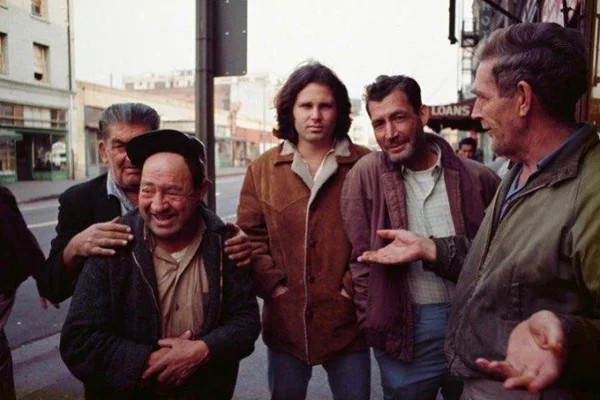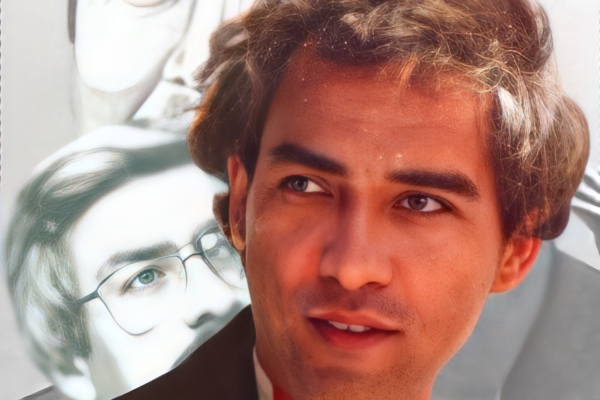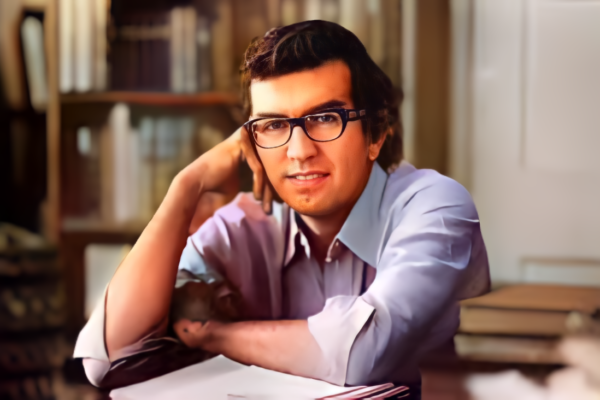Something truly miraculous happened during the vice-presidential debate. Was it the arrival of JD Vance, the common-sense, bipartisan-talking, largely agreeable candidate? Who is this man? And—more importantly—is he really running as Donald Trump’s vice president, or is he quietly crafting his 2028 campaign for president?
Because, if you ask me, the way things are going, Trump might ride to victory in November on JD Vance’s coattails—and Vance is setting himself up to win again four years later.

Let’s not mince words. Trump, by all appearances, has decided his best strategy moving forward is to stay out of sight. He knows where his bread is buttered, and it’s not with contentious debates or in-depth interviews.
Remember, Trump had agreed to sit down for “60 Minutes,” but suddenly, that idea has vanished faster than the ketchup on a Mar-a-Lago cheeseburger. Why? Because he knows his path to victory doesn’t involve talking to journalists or taking the stage again for another debate. No, his best bet is letting JD Vance be the one out there, flashing that “I’m reasonable, I’m sane” smile.
And let’s face it, who wouldn’t want JD Vance out there leading the undecideds? The man who wrote Hillbilly Elegy, the guy who can talk to both sides, the populist who made himself into a successful venture capitalist.
The Vance we saw at the debate wasn’t just agreeing to disagree—he was a walking, talking compromise. He looked like a modern-day Lincoln, ready to stitch the country back together after four years of chaos. If you didn’t know any better, you’d swear he wasn’t running for VP at all but for the top job itself. Is he Donald Trump’s loyal running mate, or is this the first act in his grand 2028 debut?
Let’s start with the debate performance. It was the kind of night where you could almost hear bipartisan angels singing.
Vance was calm, collected, and articulate—so much so that viewers who came expecting a typical Trump surrogate might have done a double-take. Here was a man who didn’t seem interested in division or derision. He talked about working with Democrats, about reaching across the aisle. You know, common sense stuff. Almost as if he forgot that the guy he’s running with built his brand by slinging more insults than a roast at the Friars Club. You half-expected Vance to look into the camera, smile, and say, “Vote for me, America! I’m your guy in 2028!”
You see, the problem Trump has is that his brand—loud, combative, and endlessly antagonistic—has reached its saturation point. At this stage, Trump could walk into a preschool, offer the kids free candy, and somehow manage to start a fistfight with a 4-year-old over who gets the lollipop. His strength isn’t in nuance, and that’s fine; it’s what got him elected in the first place.
But the undecideds? They’re tired. They don’t want noise anymore. They want stability, or at least someone who can pretend to provide it for a while. Enter JD Vance, the smooth operator, who can tell the crowd, “We’re here to fix this mess,” while subtly making sure people think that he is the one doing the fixing—not the guy with a gold-plated penthouse.
For Trump, the math is simple: He wins by keeping quiet and letting Vance take the reins in front of the cameras. You’ll notice Trump is strategically avoiding debate stages now. It’s not because he’s afraid of the tough questions—oh no, he loves a good fight.
But what Trump really loves more is winning, and he knows that the way to do that this time around isn’t with a soundbite-laden slugfest. No, it’s by letting JD Vance sound like the candidate voters actually want. And in doing so, Vance is, intentionally or not, paving the way for his own political future.
The performance Vance gave on that debate stage wasn’t about November 2024—it was a long-game play for November 2028. He managed to appear thoughtful, poised, and shockingly relatable. Sure, he had to play the Trump card every once in a while, nodding toward the boss’s policies and strategies, but you could see it in his eyes. He was already imagining a future where he doesn’t have to invoke the Donald’s name at all. In four years, Vance might just be running on the ticket without any need for Trump, delivering a message that says, “Remember when I was the level-headed one? Well, now I’m ready to take the lead.”
This puts Trump in a peculiar spot. On one hand, he’s still the larger-than-life figure driving the campaign. On the other, his best chance at winning might be to lean into the idea that he’s more of a figurehead, while JD Vance handles the business of, you know, actually running the country. It’s a delicate dance, and Trump isn’t the best at staying in the background.
But when the prize is the White House, he might just bite his tongue long enough to let Vance steal the spotlight. After all, if Trump wins this thing, he’ll owe it to Vance’s likability. And while Trump’s not big on gratitude, he is big on whatever gets him the win.
So where does that leave us, the poor voters trying to figure out which version of reality we’re living in? Is JD Vance the sensible, articulate moderate who can bring the country together? Or is he just the Trojan Horse rolling into the White House while Trump pops out, laughing maniacally as he sets up shop again? Or maybe, just maybe, this is JD Vance’s rehearsal for the main event in 2028, when he steps into the spotlight, not as Trump’s VP but as his own man.
Only time will tell. But one thing’s for sure: If JD Vance keeps playing this game, by the time 2028 rolls around, he won’t need Trump’s coattails. He’ll have built his own tailor-made suit of political power, one that fits a little more comfortably, without all the noise.
And if Trump is smart, he’ll stay in the background, nodding along as JD Vance smiles his way to victory. Just don’t tell Trump that when 2028 rolls around, he might be watching JD Vance’s inauguration from the sidelines—because that’s when the real show starts.
TONY CASTRO, the former award-winning Los Angeles columnist and author, is a writer-at-large and the national political writer for LAMonthly. org. He is the author of “Mantle: The Best There Ever Was”. He can be reached at tony@tonycastro.com.





